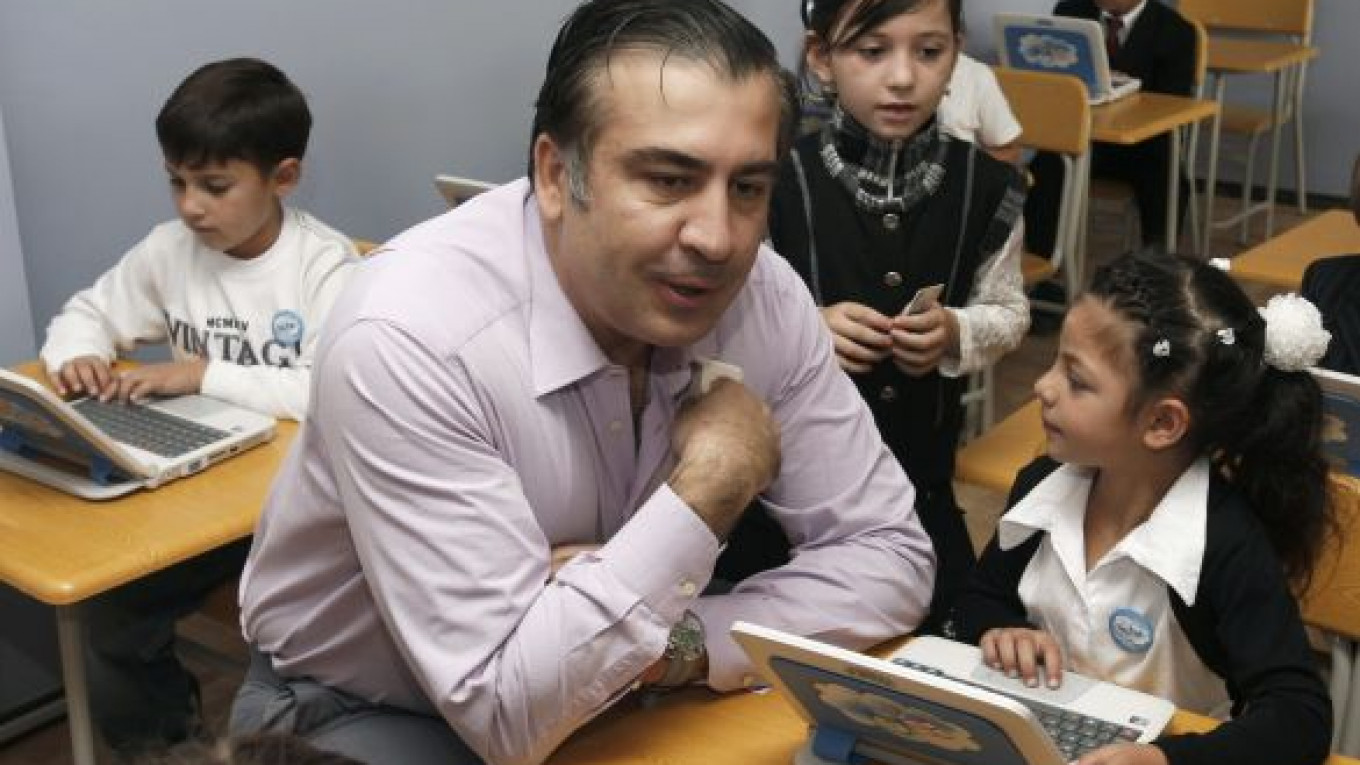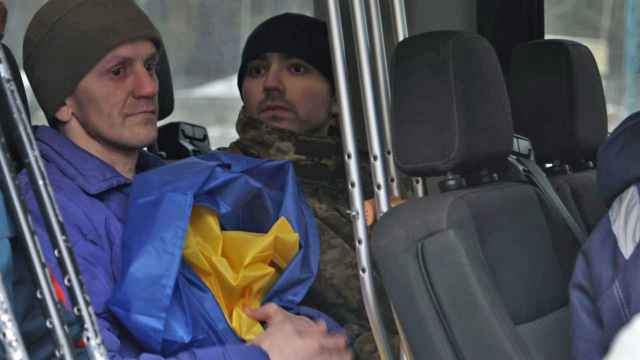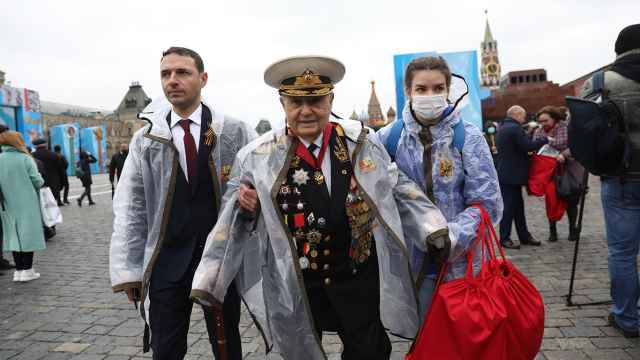TBILISI, Georgia — With Alexander Pushkin's framed visage on the wall and creased editions of fellow Russian literary giants on dusty shelves, Natela Chokhonelidze's office recalls a very different era at Georgia's State University.
"We once had a staff of 50, and now there are five, because there aren't many students," said the 70-year-old professor emeritus at the university's Institute of Russian Studies.
"Russian language is fading out," she quipped, "with me!"
Chokhonelidze is on the losing side of a deliberate shift in Georgia as its pro-Western leadership tries to supplant Russian with English as the default second language of 21st-century Georgia.
On Wednesday, hundreds of native English speakers joined the first day of school as teaching assistants under an ambitious program to have every child aged 5 to 16 speak English. English is now compulsory, and Russian optional.
The aim appears pragmatic in a globalized world where English dominates and Georgia's investment-driven economy is seeking partners in Turkey and the European Union.
It dovetails too, however, with President Mikheil Saakashvili's policy of dragging the country of 4.5 million people out of Russia's orbit, two years after war shattered already fragile ties between the neighbors.
"We're a free and independent country, and our people are free and independent. It's their choice which language to learn," Education Minister Dmitry Shashkin, an ethnic Russian, said in an interview, speaking in English.
The government plans to recruit 1,000 native English speakers by the end of the year on 500 lari ($272) per month, eventually building up to one per school.
English "opens many doors," Shashkin said. "Georgia doesn't have oil; Georgia doesn't have natural gas. The resource we have is our people, the intellectual potential of our country."
The plan puts Georgia at the sharp end of the Russian language's retreat from the former Soviet Union. Language imparts influence, and here too, Russia faces a challenge from the West and China over investment opportunities and oil and gas supplies in the Caspian Sea and Central Asia.
Critics question the wisdom of relegating Russian, still the most likely language of communication between former Soviet republics, to a third tier.
But much of it is generational. Students entering university now were born after the collapse of the Soviet Union in 1991. The influence of Western pop culture and the Internet is strong.
So too is the fallout from the deterioration in political relations with Russia since Georgia's 2003 Rose Revolution swept aside the former Soviet old guard and brought Saakashvili and his team of English-speaking ministers to power.
"Taken in the wider context … it seems there is a political element behind this," said Shorena Shaverdashvili, editor of Georgian weekly Liberali.
English should be taught, she said, but "why replace one [language] with the other? This is our neighborhood, and the common language with our neighbors is Russian."
At the university, Chokhonelidze laments the passing of an era, and the generations brought up on reading Pushkin, Tolstoy and Dostoevsky. "I fear in a few years when those grandfathers and grandmothers aren't around, nobody will bother."
The answer, said 20-year-old mathematics student Nugzar Barbakadze, is simple: "I can read Russian books in Georgian."
A Message from The Moscow Times:
Dear readers,
We are facing unprecedented challenges. Russia's Prosecutor General's Office has designated The Moscow Times as an "undesirable" organization, criminalizing our work and putting our staff at risk of prosecution. This follows our earlier unjust labeling as a "foreign agent."
These actions are direct attempts to silence independent journalism in Russia. The authorities claim our work "discredits the decisions of the Russian leadership." We see things differently: we strive to provide accurate, unbiased reporting on Russia.
We, the journalists of The Moscow Times, refuse to be silenced. But to continue our work, we need your help.
Your support, no matter how small, makes a world of difference. If you can, please support us monthly starting from just $2. It's quick to set up, and every contribution makes a significant impact.
By supporting The Moscow Times, you're defending open, independent journalism in the face of repression. Thank you for standing with us.
Remind me later.






